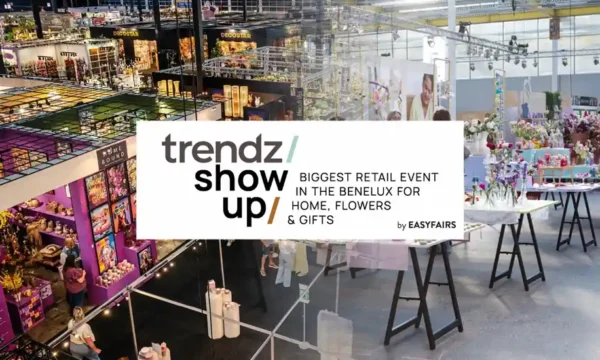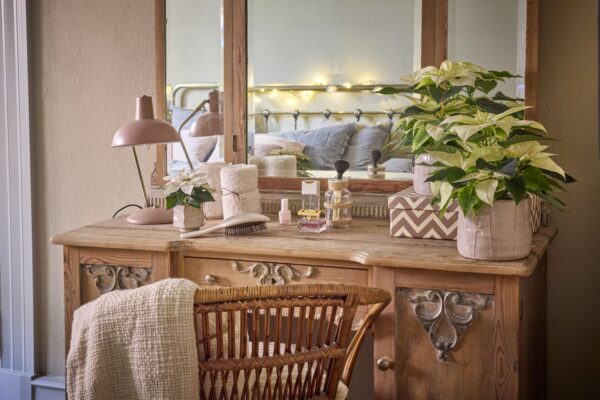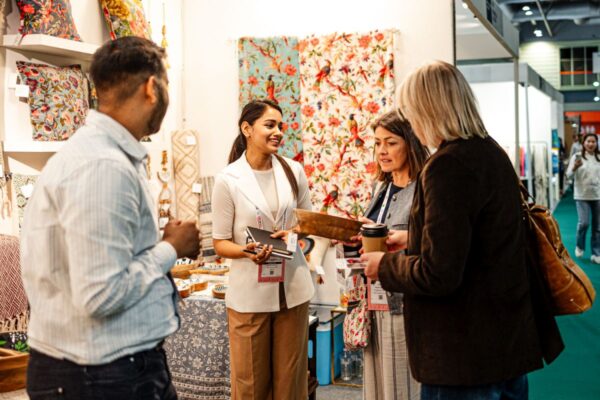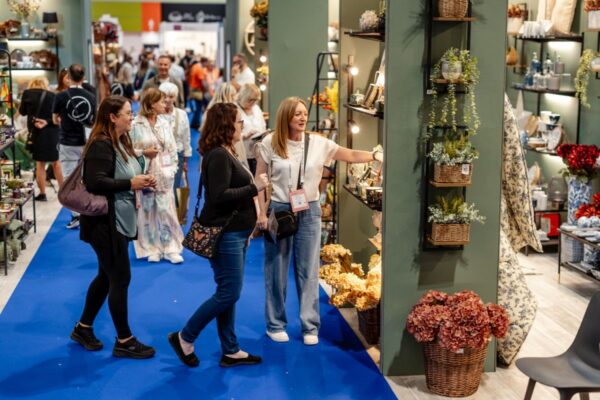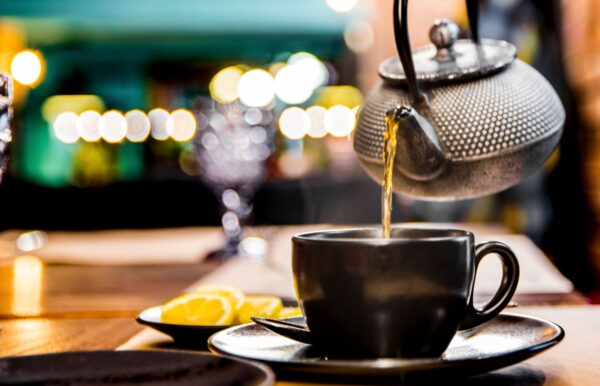 Alan Monahan writes: Were you at Spring Fair? I’ve visited since 1997 and this year it was one of my more enjoyable experiences.
Alan Monahan writes: Were you at Spring Fair? I’ve visited since 1997 and this year it was one of my more enjoyable experiences.
Old-timers complain that ‘trade shows aren’t what they used to be’. They’re not – and neither is the gift industry. The online world and fewer shops have seen to that.
But at this Spring Fair it seemed that buyers had time to take a breath and appreciate the beautifully dressed stands and amazing use of colour. And I can’t recall ever seeing so many superbly packaged products – with an abundance of purples, pinks and yellows – as there were at this show. The retailers among you will surely appreciate how important that is when it comes to shifting ranges from your shelves.
If you have a small, independent shop I still firmly believe that going to Spring Fair, showUP, Ambiente or other shows is still the best way of gaining an advantage over your competitors who don’t attend, whether they are retail giants or of a similar size to you. There is no substitute, because being there and seeing and buying new product is imperative if you are to survive and thrive.
Yes, I know it comes at a cost. Some of you have to shut-up shop and, despite the best efforts of organisers to secure decent hotel room rates, it isn’t cheap. But do the rewards for rocking up outweigh the negatives? Well, if you ignore the short-term pain and take the longer view, I think they just might.
And what about exhibitors? One I spoke to at Spring Fair declared that he was very happy with both the business that had been written and the footfall up until Wednesday afternoon. ‘But it’s not just about that,’ he told me. ‘This is also a great opportunity to show our full range to existing customers and potential new ones.’
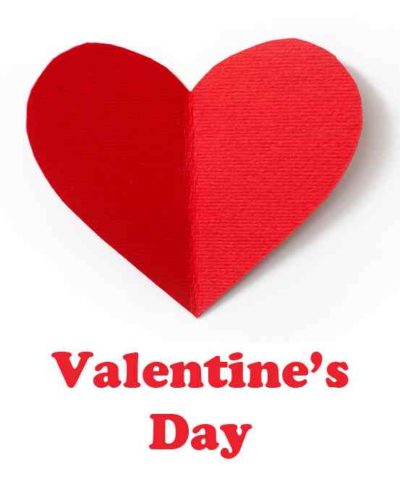 I do hope that you rang up your share of the £650 million that Mintel anticipated Brits would spend on Valentine’s Day this year.
I do hope that you rang up your share of the £650 million that Mintel anticipated Brits would spend on Valentine’s Day this year.
That’s £30 million more than in 2017, which seems to indicate that despite challenging times we are still a nation of romantics. Last year, consumers spent £60 on average on Valentine’s Day gifts, significantly up on the £41 they shelled out in 2016.
But did you stock the right product this time around?
Samantha Dover, Mintel’s retail analyst, expected shoppers to trade up to both premium and personalised gift options this year, with retailers tapping into demand for high quality products.
Apparently, consumers were also looking for ‘experimental gifts’, which led to some retailers offering embroidery classes to teach people how to make Valentine’s themed decorations or even chocolate! Excuse the pun, but I found that a bit hard to swallow.
So, based on the above, how did you fare on the Valentine’s buying front: not so good? Don’t fret.
Here’s what Eleanor Parr, the retail analyst for GlobalData, had to say: ‘Although in the past Valentine’s Day was seen as an opportunity to spoil loved ones and shower them with luxury gifts, with 45.8% of consumers last year thinking Valentine’s Day is a waste of money and 56.2% believing it costs too much, consumers are expected to be more willing to receive and shop for cheaper gifts at discount players.’
 I suspect that the Valentine’s stock offered by most independent retailers was neither cheap nor expensive, but somewhere in between, with a smattering of pick-up lines and the occasional so-called ‘luxury’ item. That seems to work for most of you.
I suspect that the Valentine’s stock offered by most independent retailers was neither cheap nor expensive, but somewhere in between, with a smattering of pick-up lines and the occasional so-called ‘luxury’ item. That seems to work for most of you.
Last year, men were more generous Valentine’s givers than women with an average spend of £72 compared with £44, while 60% of those aged between 27 and 37 really went overboard, splashing out an impressive £81 on average.
Age and inclination ensured that I wasn’t one of them. ‘Miserable old so-and-so,’ I hear you cry. And you’re probably right. I confess to being delighted when Valentine’s doesn’t fall on a Thursday. That’s when I take my wife out to dinner – and we are able to enjoy our favourite restaurant without paying extortionate prices for a limited menu.
Enough of that: back to Mintel’s research. I was wondering if they had drilled down to discover – gender traditions apart – who buys what and for whom when it comes to Valentine’s Day and what part those that are LGBTQ (do let me know if I’ve left out anybody) play in all of this. If they haven’t, I’m sure that one day soon we will be told. Such data would surely be invaluable to retailers and suppliers.
As you would expect, food and drink consumed at home accounted for the largest Valentine’s spend in 2017 (£128 million), followed by jewellery (£112 million), flowers (£102 million) and clothing or footwear (£80 million). Some £53 million was spent on cards.
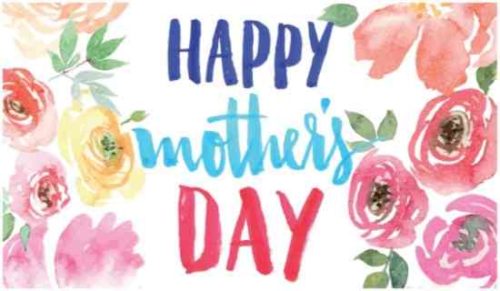 The next big ‘occasion’ for retailers is, of course, Mother’s Day (March 11th), which saw an estimated retail spend of £1.4 billion last year.
The next big ‘occasion’ for retailers is, of course, Mother’s Day (March 11th), which saw an estimated retail spend of £1.4 billion last year.
It’s less than a month away, so I do hope those lovely gift items from suppliers are now sitting in your shop You will, of course, have ensured that you have enough appropriate products available to purchase right up to those final hours as there is always a high level of last-minute shopping for Mother’s Day.
According to Mintel, the challenge goes beyond that when it comes to e-commerce: as people become increasingly accustomed to fast order from online retailers, their tendency to leave gift purchasing until the last minute is likely to rise. Those retailers who can offer fast delivery in the final days of the build-up to Mother’s Day will be the most likely to capitalise.
I know, it’s only February and you already deserve a holiday!







